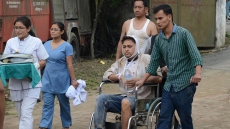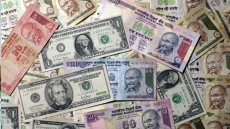The Supreme Court on Thursday suspended a criminal defamation suit in Maharashtra against Congress vice president Rahul Gandhi following his speech about the RSS and the assassination of Mahatma Gandhi during the Lok Sabha election campaign last year.
A bench of Justice Dipak Misra and Justice Prafulla C. Pant also issued notice for Rashtriya Swayamsevak Sangh (RSS) activist Rajesh Kunte.
Seeking to decriminalise the defamation law, senior counsel P.P.Rao, appearing for Gandhi, told the court that "criminal defamation law is colonial legacy and which has no place in democratic India".
Earlier, the Bombay High Court had declined Gandhi's plea for quashing a defamation case against him by the RSS activist.
Kunte initiated the criminal defamation proceedings against the Congress vice president objecting to his election speech at Sonale in the state where Gandhi had blamed RSS for Mahatma Gandhi's assassination.
Kunte has said that Gandhi in an election meeting at Sonale on March 6 had said "RSS people killed Gandhiji".
Besides Kunte, the notice has also been issued to the central and Maharashtra governments.
The court gave the central and state government and the RSS activist four weeks to file their replies and another two weeks to Gandhi to file his rejoinder.
Fixing the next date of hearing on July 8, the court also made it clear that in the event of any failure to file response to Gandhi's petition, the date of final hearing will not be changed.
Tagging Gandhi's petition with that of Bharatiya Janata Party leader Subramanian Swamy and Delhi Chief Minister Arvind Kejriwal cases already pending with the court, the court said it would only examine the validity of the provisions that permitted initiation of criminal defamation and not go into the merit of the case.
On Swamy's plea, the apex court is examining whether sections 499 and 500 of the India Penal Code relating to defamation and punishment for defamation respectively travelled beyond the constitution's article 19(2) that imposes reasonable restrictions on the freedom of speech and expression.






